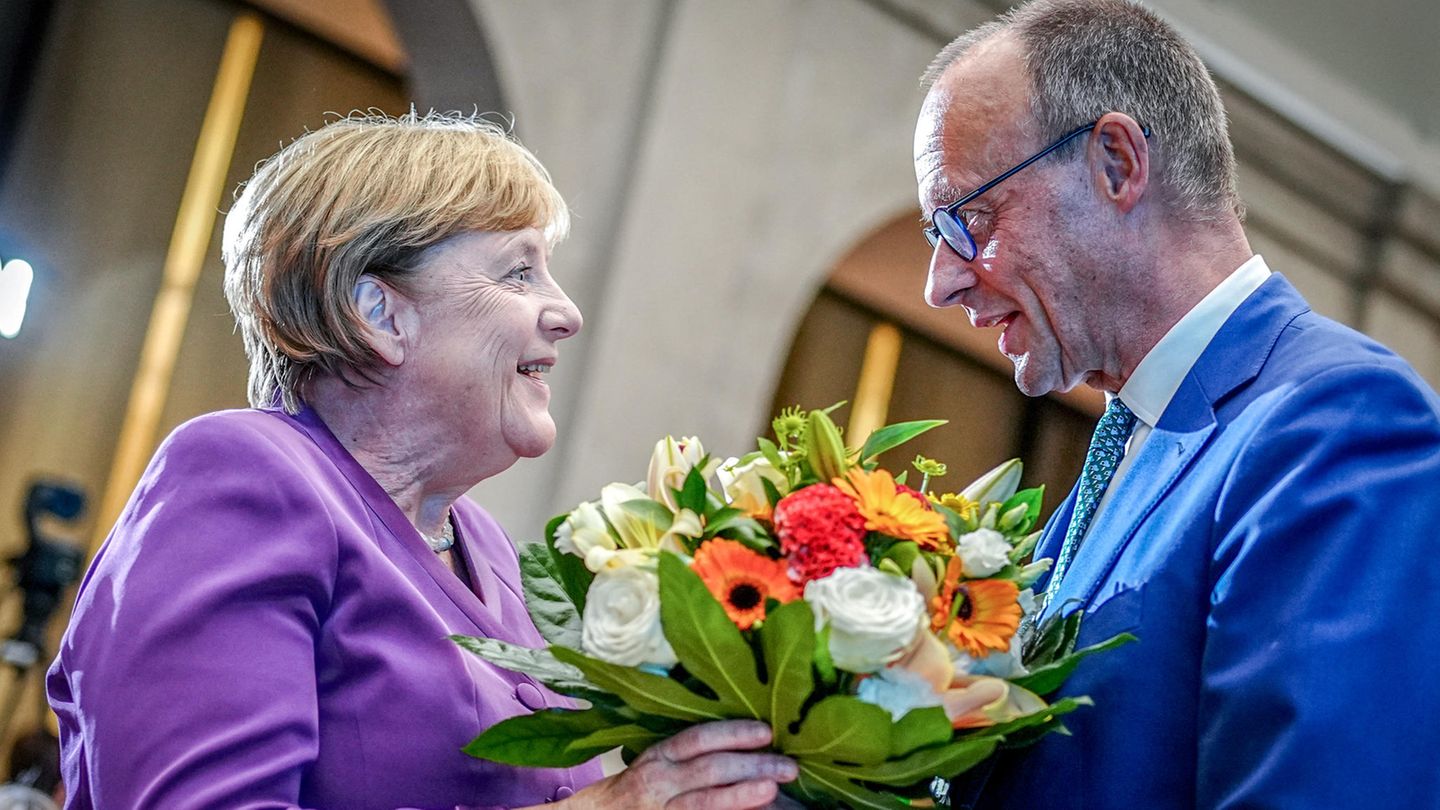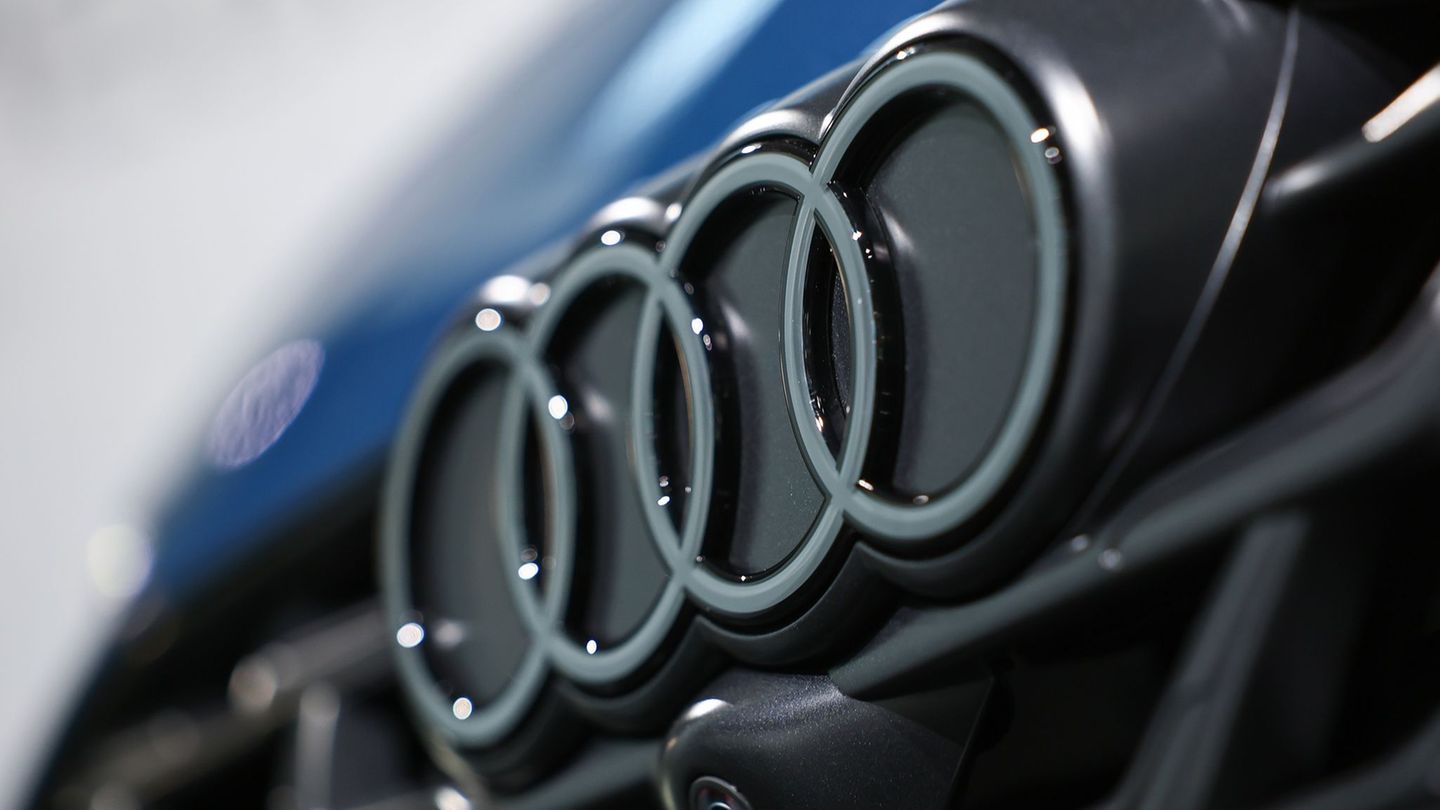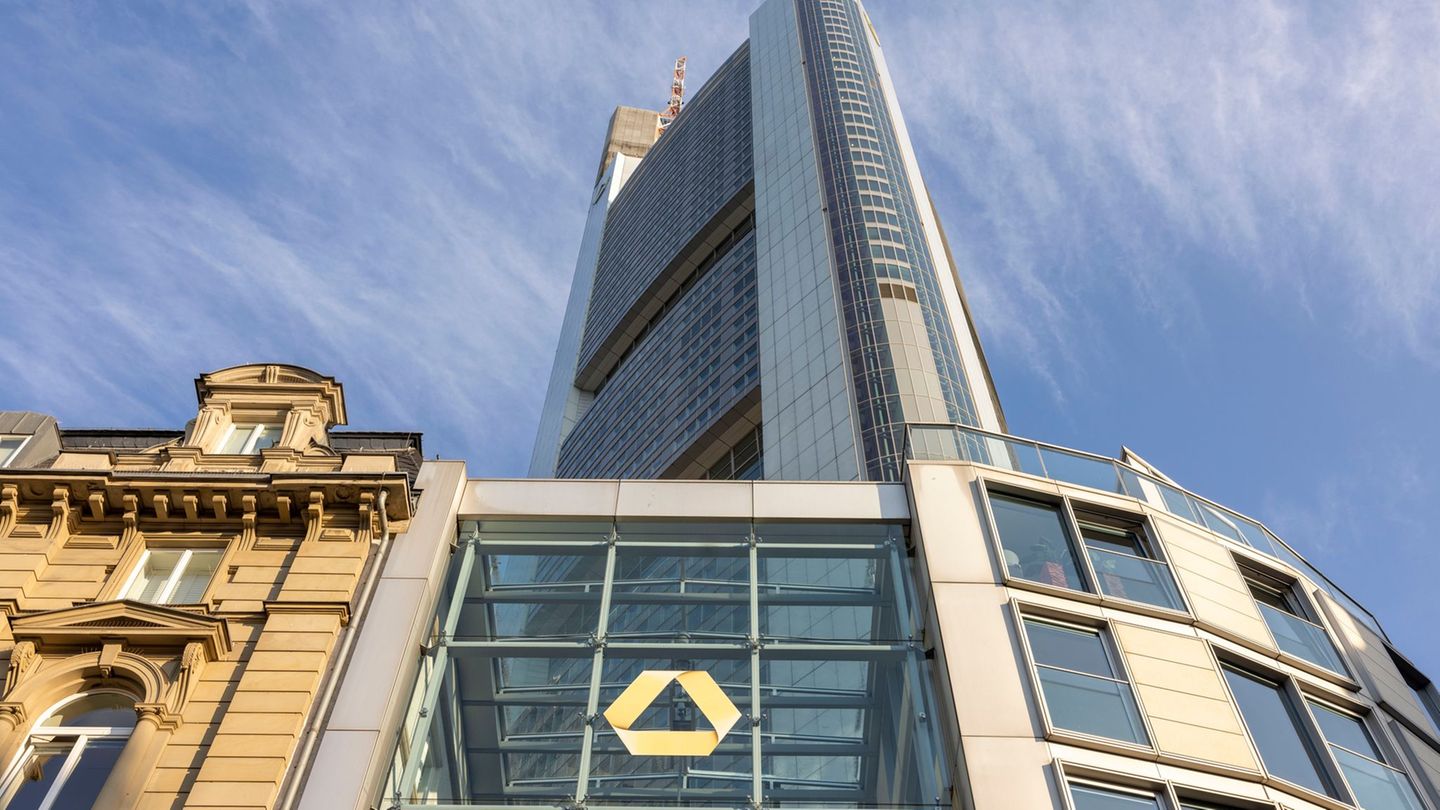Rare appearance: Angela Merkel wishes Friedrich Merz “all the best” for his candidacy for chancellor. Differences such as refugee policy are ignored.
It is 8:09 p.m. on Wednesday evening when Angela Merkel makes a bit of history again. Almost three years after the end of her chancellorship, she is speaking to the CDU for the first time. Merkel has appeared very rarely in public recently, claiming that as former chancellor she is only allowed to attend “feel-good appointments”. An event of the party she led for 18 years has not been included since 2021.
This evening at the Berlin-Brandenburg Academy of Sciences, it will take another three minutes before the former party leader says the words that will be remembered politically from the event in front of around 200 guests. They are not words of reconciliation between Merkel and Merz, no one would believe them anyway. But they are a few sentences that the current party leader could hardly have hoped for not so long ago. The CDU is celebrating harmony before the upcoming election campaign – that’s what this party is like when it comes to power.
The unity of the former adversaries
To understand the meaning of the words that are to be spoken later, you have to know the history of this evening. Merz and Merkel are one of the most legendary rifts in German politics, which is what makes this event so special. As young politicians at the end of the Helmut Kohl era, Merz and Merkel were quite similar in their political views, but also in their political ambitions. They shared offices, but the temporary relationship of convenience broke down when party leader Merkel also snatched the parliamentary group chairmanship from Merz after the 2002 federal election. He soon gave up politics, ruled for 16 years, at the end of which Merz reappeared, once described Merkel’s government as “terrible” and, after Merkel’s departure and only on the third attempt, took over the party chairmanship and finally became chancellor candidate a few days ago.
A long-planned belated celebration to mark Merkel’s 70th birthday now offers the opportunity to demonstrate unity in the spirit of the CDU. This can’t hurt Merz, who might be able to take up the longed-for office of Chancellor at the end of 2025, when he will be as old as Merkel is today, whose political life is already behind her. And Merkel can once again demonstrate a little solidarity with her party. She knows how much she owes to the CDU. And vice versa.
Merz leaves the evaluation of Merkel’s policies to historians
“Dear Angela Merkel,” says Merz at the beginning of the event. He uses this greeting eight more times later, leaving out the last name. Merz calls Merkel a personality “who has shaped this country.” And he says that they want to take time this evening for discussions, “including about things that we have succeeded in and things that we have not been so successful in.” Merz does not get any more specific, and in any case he elegantly avoids individual assessments of the Merkel era. With a quote from Hannah Arendt, he points out that historians have the final say on what politics did right and what it did wrong.
Only once can one sense a hint of distance, when Merz attests to Merkel that she had held Europe together through strong leadership during the euro and corona crises, but he did not mention the refugee crisis in this list. For years, Merkel had strictly rejected the kind of rejections at the borders that Merz is vehemently demanding these days, thereby bringing the CDU-CSU union to the brink of a split. Chancellor Merkel would never have let today’s Merz on refugee policy get away with it. If one had the opportunity to ask Merkel how she sees the CDU’s tough approach today, she would probably – as she has done in the past – evade the question for the sake of peace with a condensed quote from the Bible: “Everything has its time.”
Angela Merkel’s party guests: a brain researcher, two historians
Merkel traditionally invites scientists to give a lecture on her milestone birthday. For her 50th birthday in 2004, the assembled CDU celebrities were able to listen to the brain researcher Wolf Singer, and in 2014 the historian Jürgen Osterhammel spoke, whose then most recent book of almost 1000 pages Merkel had read while she was recovering for weeks from a broken pelvis suffered while cross-country skiing. This time the art historian Horst Bredekamp speaks, who initially reports on a first invitation from Joachim Sauer many years ago, on the occasion of which his wife Angela Merkel served “wonderful roulades”. Bredekamp received rather involuntary attention much later as Merkel’s companion in Florence, where he guided her through the museums in early summer 2022, while Ukrainian President Volodymyr Zelenskyi urged the ex-chancellor to visit the victims of a Russian massacre in Bucha, for which she was partly responsible through her policies.
Such challenges naturally play no role this evening, even if the professor’s lecture is certainly political. Bredekamp spends a good 45 minutes wandering through the history of the light and shadow of the Enlightenment and uses images to show how political modernization was reflected in paintings, frescoes and architecture. While Bredekamp talks about Horkheimer, Adorno, Habermas and Hobbes, some visitors inspect the audience. Close confidants have come, such as Volker Kauder, Thomas de Maizière and Peter Altmaier. People who played a role at the beginning of Merkel’s chancellorship are listening, such as the publisher Friede Springer or the first government spokesman Ulrich Wilhelm. But you also see former ministers such as Julia Klöckner and Jens Spahn, who are more or less left over at the end of Merkel’s last chancellorship. And of course Markus Söder and Hendrik Wüst, the first victims of Merz’s consciousness of power, to which the Union now has to submit.
“Everyone knows that we had ups and downs”
And then Merkel steps onto the podium. She thanks the guests for coming and jokes that some invitations that were not sent or did not arrive leave a lot of room for interpretation – apparently a deliberately unclear allusion to Horst Seehofer, who had previously reported in the “Süddeutsche Zeitung” that he had not received an invitation. Lovers of political animosity are immediately reminded of that night in 2015 when Chancellor Merkel was unable to reach CSU Chairman Seehofer to talk to him about the refugees flooding into Germany from Hungary and Austria. To this day, it is not entirely clear who was actually to blame for this failed communication.
Merkel dedicated the most important sentences of the evening to the CDU chairman. “Dear Friedrich,” she said, and the tension in the room rose noticeably at that moment. “Everyone knows that we have had ups and downs in our political lives.” Now he is the Union’s candidate for chancellor, which is “an honor and a task at the same time,” as she herself knows. And then she said: “I wish you all the best and much success for the next few months.” The applause that followed sounded relieved and lasted more than 20 seconds. It was a signal that Merkel supported Merz’s candidacy in all courtesy – no more, but also no less. They don’t have to become good friends, but demonstrative friendliness is enough.
Source: Stern
I have been working in the news industry for over 6 years, first as a reporter and now as an editor. I have covered politics extensively, and my work has appeared in major newspapers and online news outlets around the world. In addition to my writing, I also contribute regularly to 24 Hours World.




